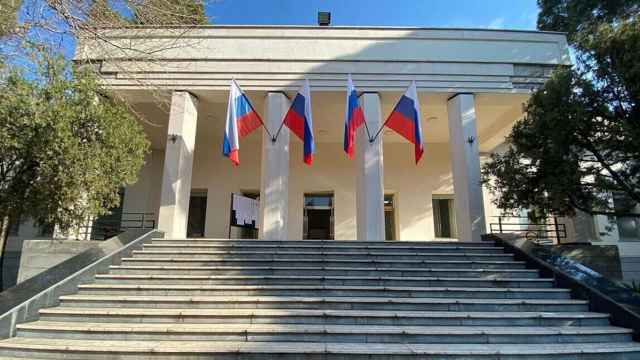Russia's Uralkali will invest $4.5 billion over the next five years to raise production capacity by 30 percent, aiming to remain the world's largest potash company despite a setback at a major mine.
Uralkali's capacity to produce potash, a crop nutrient, came into focus after it halted production at the Solikamsk-2 mine, damaged by flooding in November.
"We are the industry leader and aim to maintain and strengthen our long-term prospects in the global potash market by increasing our annual production," Dmitry Osipov, Uralkali's chief executive, said Thursday.
The new production plan was announced alongside financial results for 2014, which were hit by non-cash write-offs caused by a more than 40-percent slump in the value of the ruble against the U.S. dollar.
Uralkali, whose competitors include Canada's Potash Corp, posted a net loss of $631 million for 2014, much worse than analysts' forecasts, due to a foreign exchange and fair value loss on derivatives of $2 billion. Analysts, some of whom did not include non-cash write-offs in their estimates, on average expected a net profit of $784 million.
Uralkali's revenue rose 7 percent to $3.6 billion, while earnings before interest, tax, depreciation and amortization (EBITDA) increased 9 percent to $1.8 billion, exceeding analysts' forecast of $1.6 billion.
The company plans to increase its annual production capacity to 14.4 million tons by 2020 by expanding existing operations and constructing new facilities. Its capacity fell to 11 million tons from 13 million tons after the Solikamsk-2 was halted.
Uralkali may have to write down up to $1 billion for damage to the Solikamsk-2 mine and for the loss of potash reserves in the worst-case scenario, it said previously. Its 2015 production may fall 16 percent to 10.2 million tons if the mine is shut off permanently.
According to its reviewed strategy, measures have been approved to produce additional 800,000 tons of potash from 2016, the company said Thursday.
It has also decided to expedite the commissioning of new capacity at Solikamsk-3 to launch it in 2017 and to build two new shafts by 2020 to mine safety the remaining reserves of Solikamsk-2.
Shares in Uralkali were up 4 percent in Moscow, beating a 1-percent rise in the broader local index.
A Message from The Moscow Times:
Dear readers,
We are facing unprecedented challenges. Russia's Prosecutor General's Office has designated The Moscow Times as an "undesirable" organization, criminalizing our work and putting our staff at risk of prosecution. This follows our earlier unjust labeling as a "foreign agent."
These actions are direct attempts to silence independent journalism in Russia. The authorities claim our work "discredits the decisions of the Russian leadership." We see things differently: we strive to provide accurate, unbiased reporting on Russia.
We, the journalists of The Moscow Times, refuse to be silenced. But to continue our work, we need your help.
Your support, no matter how small, makes a world of difference. If you can, please support us monthly starting from just $2. It's quick to set up, and every contribution makes a significant impact.
By supporting The Moscow Times, you're defending open, independent journalism in the face of repression. Thank you for standing with us.
Remind me later.





